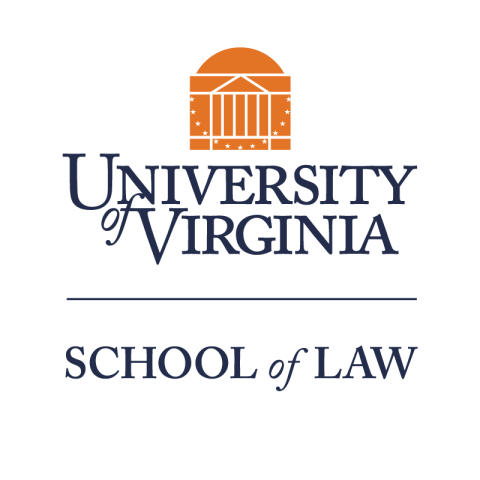University of Virginia School of Law
The information on this page was provided by the law school.
Official Guide to ABA-Approved JD Programs
Founded by Thomas Jefferson in 1819, the University of Virginia School of Law is a world-renowned training ground for distinguished lawyers and public servants. Located in Charlottesville, Virginia, just two hours southwest of Washington, DC, the Law School offers students a unique environment in which to study law.
Considered one of the top law schools in the nation, Virginia has educated generations of lawyers, instilling in them a commitment to leadership, integrity, and community service. The Law School is justly famous for its collegial environment that bonds students and faculty, and student satisfaction is consistently cited as among the highest in American law schools. At Virginia, law students share their experiences in a cooperative spirit, both in and out of the classroom, and build a network that lasts well beyond their three years here.
The Law School is located in an expansive and attractive setting that fosters learning and personal growth. The library, with more than 870,000 volumes and volume equivalents, is one of the largest law libraries in the country. Virginia offers numerous study spaces, offices for student organizations and journals, and a large dining facility.
Charlottesville is a picturesque and thriving greater metropolitan area of more than 200,000. Area restaurants are featured in publications such as Gourmet magazine and The New York Times. Theater, opera, and music are community fixtures; each year the city hosts the nationally acclaimed Virginia Film Festival and gathers literary luminaries for the Virginia Festival of the Book. Students enjoy going to sporting events and concerts in one of the country’s finest college arenas.
The JD Program
Virginia offers nearly 300 courses and seminars each year, including an externship program and 24 clinics for hands-on training. Students pursuing interdisciplinary ideas benefit from an environment where nearly half of all law faculty hold advanced degrees (other than the JD) in fields such as psychology, economics, philosophy, history, medicine, and theology. Each first-year student takes one small-section class of 30 students during the first semester, which helps bond classmates from the start.
Virginia’s curriculum is enhanced by several academic programs, including those in international law, human rights, law and public service, criminal law, environmental law, legal and constitutional history, race and law, intellectual property, health law, and immigration law. The Program in Law and Business offers students courses that integrate business and legal analysis in the law school classroom. Foundational courses in accounting and finance allow students in the program to take more advanced instruction in real-life corporate law problems.
Students may enroll in several combination-degree programs:
- JD/MBA—a four-year program in conjunction with the Darden School of Business
- JD/MA—in English, environmental science, government, foreign affairs, history, or philosophy
- JD/MD
- JD/MS—in accounting
- JD/MUEP (urban and environmental planning)
- JD/MPP (public policy)
- JD/MPH (public health)
- JD/Master’s in Economic Law at Sciences Po in Paris
In addition, students may pursue a dual degree by combining a law degree from Virginia with the MPA (public affairs) from Princeton, MALD (law and diplomacy) from the Fletcher School at Tufts, or the MA in international relations and international economics from Johns Hopkins.
Ten academic journals and more than 75 student organizations—from social clubs to groups dedicated to the community’s legal needs—ensure that students explore the world outside law school and expand their legal experiences while leading well-rounded lives.
Career Placement and Bar Passage
Tuition and Aid
The Law School helps students finance their legal education through a variety of resources, including scholarships, federally sponsored loan programs, and private-sector educational loans. While the primary responsibility for financing a legal education rests with students and their families, the Financial Aid Office works with students to identify sources of financial support and develop realistic budgets to meet their educational and professional goals.
Admission Decisions: Beyond the Numbers
Each year, many highly qualified college graduates apply for the necessarily limited number of places in the first-year class. Our admission process aims to select from the applicant pool an entering class of students who will contribute to this academic community during their three years of residency and, ultimately, to society and the legal profession. To that end, our evaluation criteria are holistic and necessarily assess all components of the application. We consider intellectual aptitude and academic achievement, as well as individual life experiences, obstacles overcome, contributions through service and leadership, a unique worldview, demonstrations of strength of character, the nature and quality of any work experience, military service, and an applicant’s potential to contribute to and succeed at UVA Law.
If the University of Virginia is your first choice for law school, you may apply under the Binding Expedited Decision option. Expedited Decision applicants commit to enrolling if admitted and must withdraw all applications to other law schools once notified of admission to Virginia. Expedited Decision applicants will receive a decision within 21 days of the date on which their applications become complete.
Some applicants may be invited to interview as part of the admission process. In addition, we urge all prospective students to visit the School of Law. When classes are in session, student-led tours usually are available with select classes open to visitors. On most Friday afternoons during the school year, members of the Admissions Office also hold admission information sessions and current students run student life panels for prospective students.

